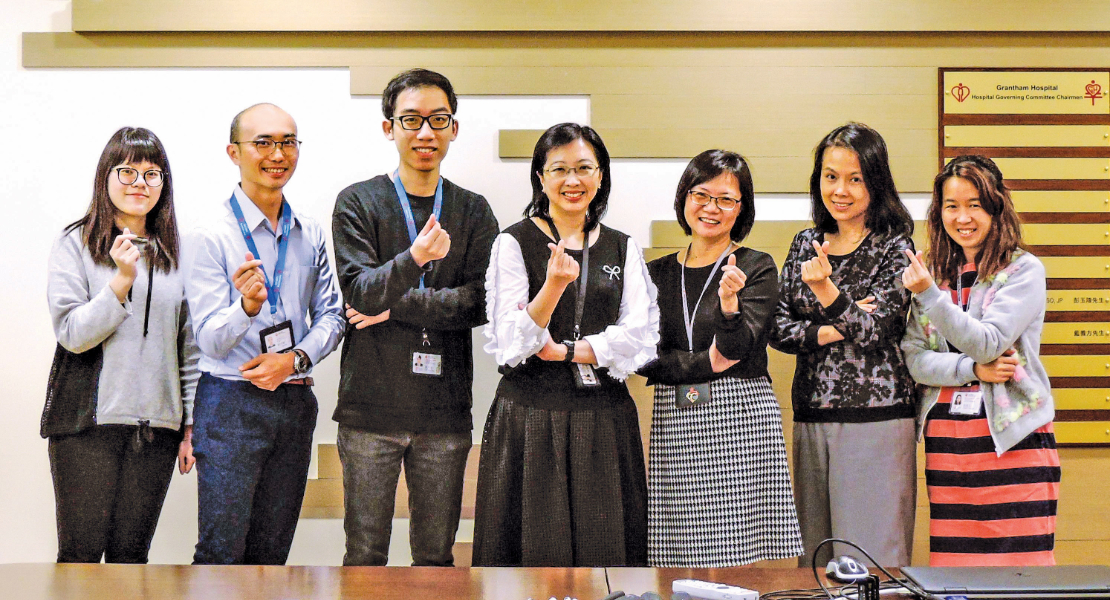Rising to the Top, Twice
Dr Elaine Leung | General Manager (Nursing), Grantham Hospital
“Registered nurses in Hong Kong have two career paths. One is the clinical field where they take care of patients. The other is to be promoted into management stream,” said Dr Elaine Leung, GM(N) of Grantham Hospital. But there is a third path and Dr Leung is leading the way in ploughing it: having thriving careers as both a clinician and a manager.
Dr Leung, who completed her Doctor of Nursing at HKU in 2016, initially rose through the ranks in the clinical field. She became a nurse specialist in diabetes and was promoted in 2009 to be the first nurse consultant in the Hospital Authority’s Hong Kong West cluster, where one in 10 patients have diabetes. Along the way, she earned two Master’s degrees, in health service management and primary health care.
As a nurse consultant, she was supposed to divide her time between seeing patients and doing teaching, service development, quality improvement and research. But the on-the-job time demands meant research fell down the priority list, so Dr Leung decided to pick up that slack in her spare time through the HKU doctoral programme. It proved to be a career-changing decision.
“How I became promoted to GM(N) has a lot to do with my doctorate degree because I learned how to expand my knowledge and capacity outside my comfort zone,” she said.
The experience strengthened her research and communications skills. For her dissertation, she did a randomised control trial of patients with diabetes in which the control received the usual group therapy and education programme and the experimental group received individualised counselling by a nurse. Both groups showed improvements, but those who received individual education did significantly better. “I had to learn how to interpret the results and make them meaningful to others, especially top management people,” she said.
Importantly, Dr Leung also fine-tuned her time management skills by maintaining a high-level job while studying a higher degree. She enjoyed the challenge so much that when she completed her doctorate, she decided to switch from the clinical to management path and applied for the GM(N) position. “I found I had some spare capacity and thought I could try something new, take on a new challenge,” she said.
Since stepping up to her new position in March 2019, she has had to adjust from managing a team of 20 nurses to managing 300, and she has spent long hours reading reports and solving problems. Staff retention is a big challenge, especially when the private sector offers more money and jobs that may not require night work, so she has been working hard to show nursing staff the benefits of the public hospital sector.
“One thing we can offer nurses that they will not get in the private sector is specialty training. Especially for high-skilled nurses, if you don’t upgrade your skills, they will deteriorate. Nurses in our specialty wards also get to be involved in the complete picture of patient care, including before and after complex operations,” she said.
Specialisation is something Dr Leung is all in favour of, having gone that route herself. Other countries have specialist nurses who are given extra responsibilities, such as doing endoscopies and drug prescriptions. Dr Leung has been invited to join different evaluations on nurse consultant development in Hong Kong. Her HKU doctorate helped in that regards, too: “When they know I have a doctorate degree, they are more eager to involve me. It brings a lot of respect,” she said.
Back


